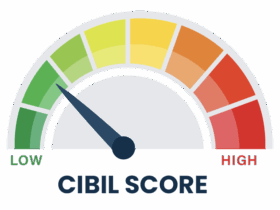Obtaining a business loan in India can be a critical step in expanding your operations, purchasing new equipment, or managing cash flow. Whether you’re applying for a secured business loan or an unsecured business loan, having the right documentation is crucial to the approval process. This blog will guide you through the essential documents needed for a business loan in India and offer insights into the business loan eligibility criteria.
Secured vs. Unsecured Business Loans
Before diving into the documentation requirements, it’s important to understand the difference between secured and unsecured business loans.
- Secured Business Loan: This type of loan, which requires collateral, offers the advantage of lower interest rates and higher loan amounts. However, the risk of losing the collateral in case of default should be carefully considered.
- Unsecured Business Loan: These loans do not need collateral and are based on the borrower’s creditworthiness. While they offer quicker processing times, they often come with lower loan amounts and higher interest rates than secured loans.
Essential Documents for a Business Loan
The documentation required can vary slightly depending on the lender and the type of loan. However, the following are commonly required documents for both secured and unsecured business loans:
Identity Proof
For Sole Proprietors and Individuals:
- Aadhaar Card
- PAN Card
- Passport
- Voter ID
- Driving License
For Companies:
- Certificate of Incorporation
- Memorandum of Association (MoA)
- Articles of Association (AoA)
- PAN Card of the Company
Address Proof
For Sole Proprietors and Individuals:
- Utility bills (Electricity, Water, Gas) not older than 3 months
- Property tax receipt
- Rent agreement
For Companies:
- Registered office address proof (Utility bills, Rent agreement, Property tax receipt)
- Address proof of directors/partners (Aadhaar, Passport, etc.)
Business Proof
- GST registration certificate
- Udyog Aadhaar registration
- Trade license
- Partnership deed (for partnerships)
- Professional Tax registration certificate
Financial Documents
- Bank Statements: Bank statements for the last 6 to 12 months.
- Income Tax Returns (ITRs): ITRs for the last 2 to 3 years, including balance sheet and profit & loss account statements audited by a certified CA.
- Financial Statements: Audited balance sheets, profit & loss statements, and cash flow statements for the last 2 to 3 years.
- GST Returns: GST returns for the last year
Business Plan
A comprehensive business plan outlining the purpose of the loan, future revenue projections, and a detailed description of how the loan will be utilised.
Collateral Documents (for Secured Loans)
- Property documents
- Valuation report from a certified valuer
- Proof of ownership
- No-objection certificate (NOC) from the property owner, if applicable
Using a Business Loan Eligibility Calculator
Understanding your eligibility before applying can save you time and effort. A business loan eligibility calculator can help you determine whether you meet the criteria set by lenders. This tool typically requires inputs such as:
- Annual turnover
- Net profit
- Existing loans
- Credit score
- Age of the business
- Nature of the business
By entering these details, you can get an estimate of the loan amount you are eligible for and the likely interest rates.
Tips for a Smooth Application Process
- Organise Your Documents: Ensure all your documents are updated and organised. It includes renewing any expired licenses or registrations.
- Maintain a Good Credit Score: A high credit score increases your chances of approval and can help you secure better interest rates.
- Prepare a Strong Business Plan: Lenders want to see that their money will be used wisely. A detailed business plan with clear financial projections can make a significant difference.
- Know Your Eligibility: Use a business loan eligibility calculator to assess your eligibility before applying. This can help you identify areas that need improvement and increase your chances of approval.
- Choose the Right Lender: Different lenders have different criteria and offers. Research and choose a lender that best suits your business needs.
Final Word
Securing a business loan in India requires thorough preparation and understanding of the documentation needed. Whether you opt for a secured business loan or an unsecured business loan, having the right documents and a clear understanding of the eligibility criteria can significantly enhance your chances of approval.
Use tools like the business loan eligibility calculator to gauge your readiness and confidently approach lenders. With careful planning and organisation, you can secure the financing needed to grow and expand your business.








